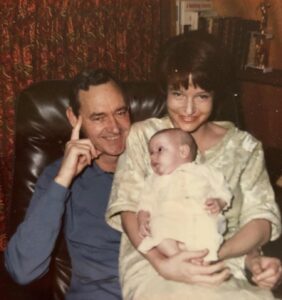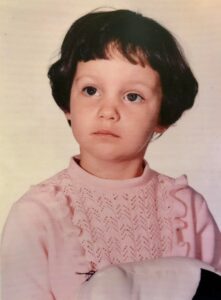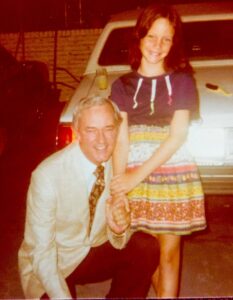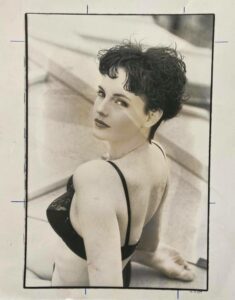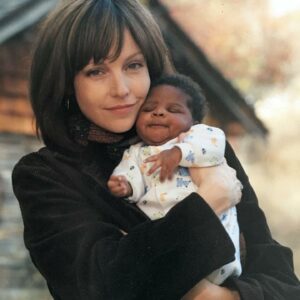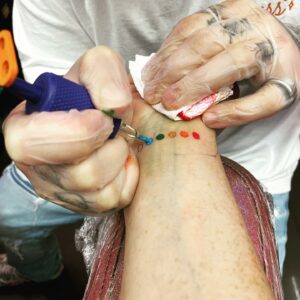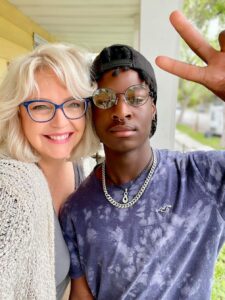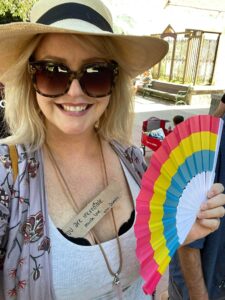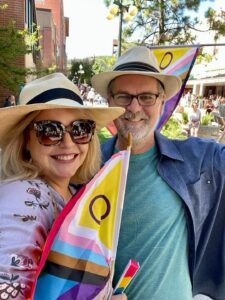Eden Atwood was born in Memphis, Tennessee, in 1969. Her father, Hub Atwood, was a well-respected composer, and her mother, Helen Guthrie, was a fundraiser and the daughter of Pulitzer Prize-winning author, A.B. Guthrie, Jr. Thanks to her parents, she developed a love for jazz music from an early age.
Her parents divorced when Eden was five, and her mother took her to live in Montana. Eden’s relationship with her parents was fraught with challenges. Eden frequently ran away from her mother, a lifelong alcoholic who resented being a mother. Her father struggled with mental health issues and eventually died by suicide when Eden was 19.
Eden recalls feeling alienated from other girls, particularly regarding her physical appearance. She was born with Androgen Insensitivity Syndrome (AIS), an intersex condition in which a person is born with male genetics but female physical traits. The condition remained undiagnosed until age fourteen when she asked to consult a doctor after being the only girl in her grade not to get a period.
After the AIS diagnosis was privately given to her mother, Eden was instead falsely informed that she had pre-cancerous twisted ovaries. To further compound this deception, Eden underwent surgery to remove her internal testes. At age sixteen, she discovered her mother and her doctors had lied about the condition, and she started to learn about AIS.
At age seventeen, Eden enrolled at the University of Montana, where she studied Drama and Musical Theatre. She then moved to Chicago where her music career started to blossom. After initially studying at the American Conservatory of Music, she earned a slot as the main headliner at Chicago’s legendary Gold Star Sardine Bar. For several years, she juggled her career in Chicago with acting roles in ABC dramas and stints in New York, Los Angeles, and Paris.
Her major breakthrough came when her self-produced album “Today” fell into the hands of Concord Records President, Carl Jefferson. Concord immediately signed her at the age of 23, making her the youngest artist ever signed to the label. The album was re-released under the name “No One Ever Tells You,” after a song her father had written for Frank Sinatra. It received critical acclaim and established her as a rising star in the jazz world, with critics praising her rich singing voice and emotional depth.
Despite her music success, Eden spent a long time feeling as though she was the only person in the world with AIS. Her breakthrough came when she searched the internet for the term while on tour in Japan. She found someone in Canada with the condition and soon afterward got involved in an email support group.
Eden co-founded The Interface Project, a project that shares stories of people born with intersex conditions. She is also a passionate civil rights advocate for people diagnosed with intersex traits.
More recently, Eden has also come to understand herself as queer. She describes herself as “cisgender with an intersex identity” and a “love-opportunistic pansexual.”
When she became the parent to a transracial adoptee, she stopped touring to spend more time with her kid and ultimately started a new career as a psychotherapist. She speaks in her OUTWORDS interview about her evolving understanding of “gatekeeping” in the intersex movement, her complicated relationship with adoption, and the importance of accountability when she realizes she’s made mistakes, referring several times to the Maya Angelou quote: “When you know better, you do better.”
Eden now lives in Helena, MT, with her partner and three dogs, continuing her music legacy and advocating for inclusivity and understanding within the intersex community.

